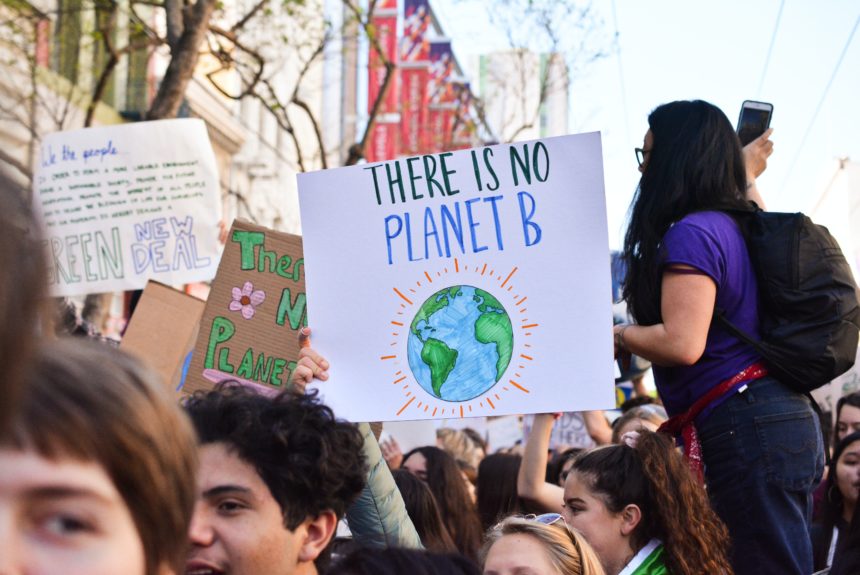By Quill Robinson
President Biden is moving quickly to implement his sweeping climate agenda. In his first week in office, he issued a flurry of executive orders and announced a sprawling climate team. While many Americans are encouraged by Biden’s focus on climate change, we should all be nervous about the price Biden is willing to make us pay.
Only hours after wrapping up his inaugural speech, which leaned heavily on the theme of unity, Biden announced that he would revoke the permit for the Keystone XL pipeline. Stretching from British Columbia to Nebraska, the project would have connected existing pipelines and reduced the need for more environmentally-risky and energy-intensive forms of transportation – it also would have created an estimated 8,000 jobs.
Despite cheering from environmentalists and jeering from energy companies, Biden’s cancellation of the Keystone XL pipeline represents neither a massive victory against climate change, nor a fatal blow to the fossil fuel industry.
Biden’s plan to set the United States on a course to reduce greenhouse gas emissions and create millions of clean energy jobs will require more than top-down policies and expert advisors. It will require bottom-up solutions and the undoing of one of the great failures in recent American political history: the polarization of climate change.
Climate wasn’t always a partisan issue. In the 2008 presidential race, Senators John McCain and Barack Obama both ran on ambitious climate platforms. But eight years later, a toxic mix of populist rage and heavy-handed Obama-era regulation had turned climate into a powerful wedge issue. On the 2016 campaign trail, the climate-alarmism v. climate-denialism drama reached a tragi-comedic crescendo, with President Trump calling climate change a “Chinese Hoax” and Hillary Clinton promising to “put a lot of coal miners and coal companies out of business.” It’s important to note, though, that Trump later said climate is “not a hoax.”
Rather than being a discussion about the appropriate policy response to a scientific reality, the last decade of the climate debate was a cultural battle. Both sides had everything to lose and nothing to gain from reaching across the divide.
For Republicans, in particular, the suspicion that Democratic leaders will use climate change to massively expand the size of government and destroy the fossil fuel industry, which is still the economic backbone of many conservative communities, runs deep. Among the conservative farming, ranching, and sportsmen communities, lectures on environmental stewardship from city-dwelling activists and politicians ring hollow.
Yet, despite the cultural divide, there is reason for optimism. In recent years, a growing number of Republican leaders and conservative figures have spoken out about the need for climate action. By the end of his time at the White House, even President Trump admitted that climate change is “not a hoax.” As a result, conservative Americans are now more willing to acknowledge that human activity is warming our planet. Even more importantly, they are supportive of policies that would reduce greenhouse gas emissions and create economic opportunity in their communities. According to a 2020 Poll from Pew, 88% of Republicans support planting a trillion trees to sequester carbon, 65% are in favor of developing clean, alternative sources of energy, and 78% agree that we should expand tax credits for carbon capture technology.
If President Biden wants to unify America around climate action, his most important task won’t be convincing every last American to “accept the science,” it will be building trust with the half of Americans who are concerned that climate action under his Administration will cost them their livelihoods.
Unfortunately, on his first day in office, he failed to do this.
Neal Crabtree, a welding foreman for the Keystone XL project until he was laid off last Friday, said, “The president, it was easy for him. He just signed a piece of paper. I got to go look at these people in their faces, and tell them they don’t have a job anymore. That’s hard to do.”
Climate change is a threat to the health, safety, and livelihoods of all Americans. There is no simple solution, but creating further division is a guaranteed path to failure. President Biden has four years to set America on track to defeat climate change. To do this, he should avoid the temptation of symbolic climate “victories” like cancelling the Keystone XL Pipeline and instead work with Republicans in Congress to legislate durable policies that will last long after his administration. Even more importantly, he should listen with compassion to the Americans for whom climate change ranks low on the list of crises they are facing.
Healing our planet, like healing our country, will require President Biden to build trust with the millions of Americans who didn’t vote for him. All Americans can unite in hoping he succeeds.
Quill Robinson is the Vice President of Government affairs at the American Conservation Coalition (ACC).
The views and opinions expressed are those of the author’s and do not necessarily reflect the official policy or position of C3.
